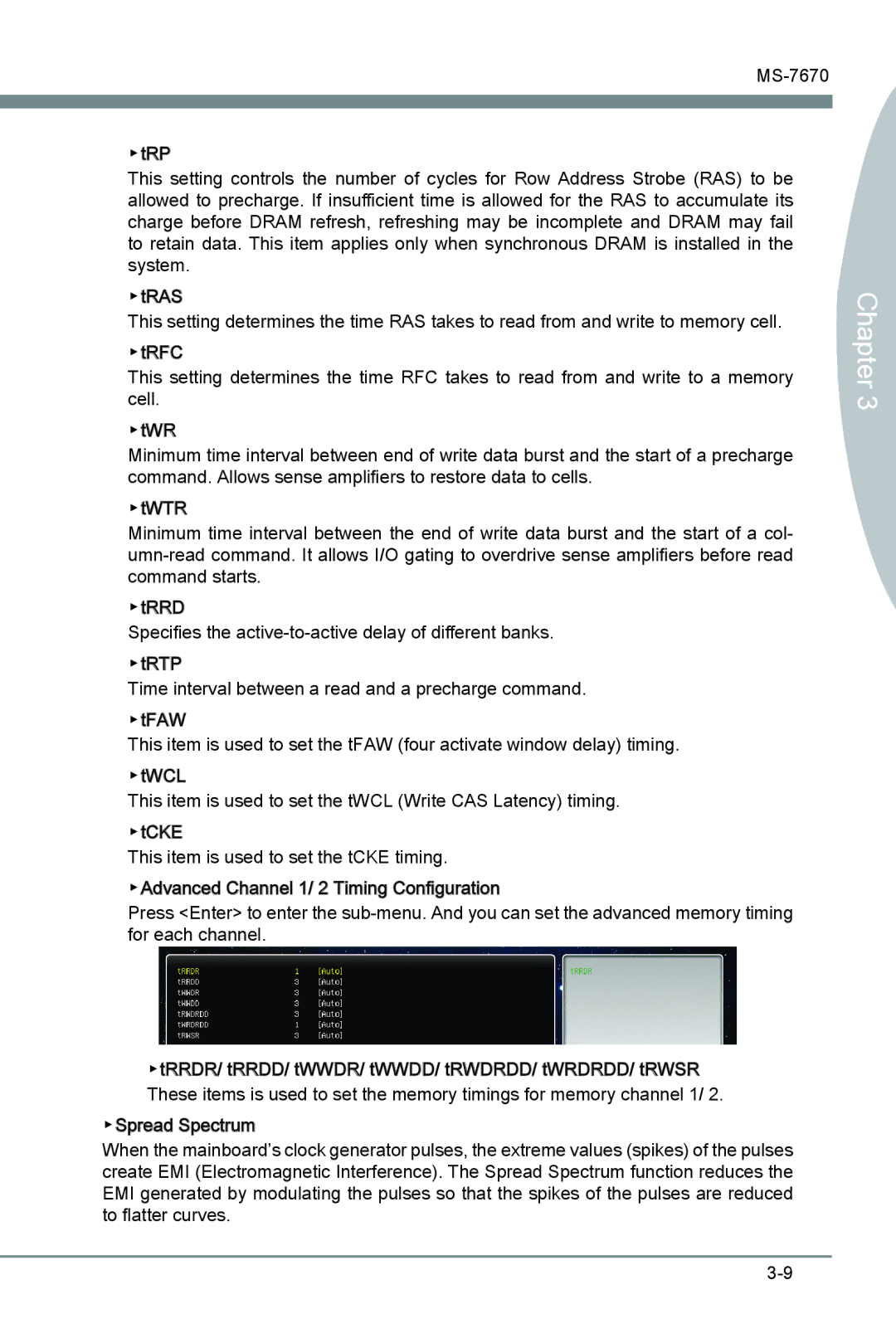
▶tRP
This setting controls the number of cycles for Row Address Strobe (RAS) to be allowed to precharge. If insufficient time is allowed for the RAS to accumulate its charge before DRAM refresh, refreshing may be incomplete and DRAM may fail to retain data. This item applies only when synchronous DRAM is installed in the system.
▶tRAS
This setting determines the time RAS takes to read from and write to memory cell.
▶tRFC
This setting determines the time RFC takes to read from and write to a memory cell.
▶tWR
Minimum time interval between end of write data burst and the start of a precharge command. Allows sense amplifiers to restore data to cells.
▶tWTR
Minimum time interval between the end of write data burst and the start of a col-
▶tRRD
Specifies the
▶tRTP
Time interval between a read and a precharge command. ▶tFAW
This item is used to set the tFAW (four activate window delay) timing. ▶tWCL
This item is used to set the tWCL (Write CAS Latency) timing.
▶tCKE![]()
This item is used to set the tCKE timing.
▶Advanced Channel![]()
![]() 1/ 2 Timing Configuration
1/ 2 Timing Configuration
Press <Enter> to enter the
▶tRRDR/ tRRDD/ tWWDR/ tWWDD/ tRWDRDD/ tWRDRDD/ tRWSR These items is used to set the memory timings for memory channel 1/ 2.
▶Spread Spectrum
When the mainboard’s clock generator pulses, the extreme values (spikes) of the pulses create EMI (Electromagnetic Interference). The Spread Spectrum function reduces the EMI generated by modulating the pulses so that the spikes of the pulses are reduced to flatter curves.
